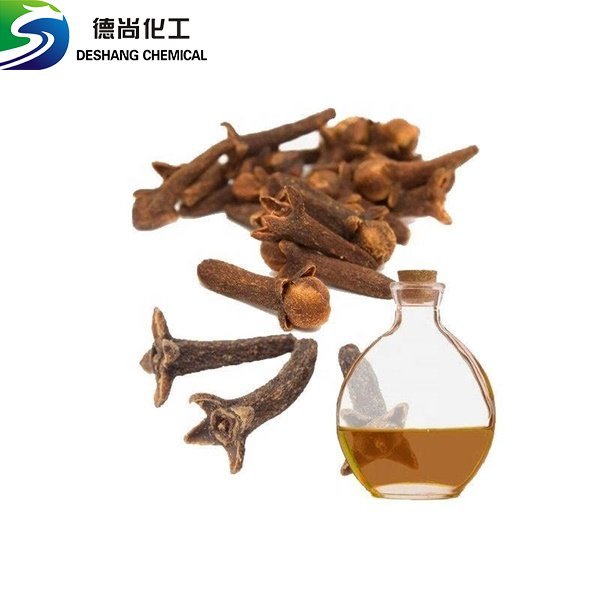Sales hotline
Sales hotline


CAS number:8000-34-8
molecular formula:C7H12ClN3O2
molecular weight:205.64208
EINECS number:616-772-2
oils,cloveleaf;oils,clovestem;Caryophyllus oil;eugenia oil;EUGENIA CARYOPHYLLUS (CLOVE) LEAF OIL;CLOVE BUD OIL;CLOVE LEAF OIL;CLOVE OIL
Clove oil; spices; plant extracts; standard products; flavors and fragrances; other organic reagents; biochemical reagents; food additives; ;Essential oils;Single essential oils;Natural spice oils;Beauty daily chemical raw materials for plant essential oils;Natural plant essential oils;Natural whole fruit essential oils;Chemical products-organic solvents;Chemical products-organic chemicals;Organic chemical raw materials;Essential oils;Essential oils-Essential oils ;Daily chemical raw materials;chemical raw materials;biochemical reagents-fatty acids;cosmetic additives, fragrances, essences;Essential oil;food additives, fragrances;functional additives chemical raw materials;medicine, pesticide and dye intermediates;chemical materials;organic chemical raw materials;Chinese medicine reference substance; natural essential oil; natural plant essential oil; chemical intermediate
Clove (Eugeniacaryopllata Thunb.) is a tree clove of the Myrtaceae family. Clove oil is an essential oil extracted from clove buds, which can treat toothache, bronchitis, neuralgia, stomach acid, resist respiratory and urinary system infections, relieve discomfort and pain caused by dysentery, improve physical weakness and anemia, aphrodisiac (sexual Incompetence, cold feeling), deworming. Promote blood circulation, treat skin ulcers and wound inflammation, treat mange, improve rough skin.
Boiling point | 251 °C(lit.) |
Density | 1.05 g/mL at 25 °C |
Refractive index | n20/D 1.532(lit.) |
FEMA | 2323 | CLOVE BUD OIL (EUGENIA SPP.) |
| Flash point | >230 °F |
| Shape | Liquid |
| Color | Yellow |
Optical activity | [α]20/D 1.50 to 0.0°, neat |
| Water solubility | Insoluble in water |
Merck | 13,2443 |
| Stability | Stable. Probably combustible. |
The flower buds of the evergreen tree clove (Syzygium aromaticum, or Eugenia caryophyllata) of the Myrtaceae family. The harvesting time is about 15mm, and the color begins to turn red, and those without buds are preferred. After drying, it is tin-shaped, dark brown, with a blunt quadrangular almost cylindrical receptacle, the lower end is narrow and the upper end has four petals split into a triangular flexible leathery calyx. There are about 10 to 15 dried flower buds per gram. It has a strong clove aroma and a burning spicy taste. Can increase appetite. It has antioxidant and anti-mildew effects on meat, baked products, potato chips, mayonnaise, salad seasoning, etc. Originating in Maluku Islands in Indonesia, it is also produced in Guangdong, Guangxi and Tanzania, Malaysia, Sri Lanka, India, South Asia and Indies.
● spices. Mainly used for ham, sausage, meat soup, gum candy, chocolate pudding, cakes, pickled foods, sauces, desserts and seasonings. Indonesians are famous for mixing cloves and tobacco leaves into a cigarette called "kretek".
● It is an important natural flavor and medicine. Widely used in daily chemical products, food, tobacco, alcohol, etc. Commonly used as analgesics and carminative, sterilization and disinfection. It is also used to extract eugenol and synthesize isoeugenol, benzyl isoeugenol and other spices.
● In medicine, it is used for antisepsis and oral disinfection. In industry, it is mainly used to prepare toothpaste and soap essence or as raw material for synthesizing vanillin.
● my country's GB 2760-96 stipulates that the edible spices are allowed to be used. Mainly used for cooking seasonings, pickles and pastries, etc.
● Test for ammonia. for microscope. Manufacture of spices.
● Immunomodulators and anti-inflammatory drugs.
● It is obtained by steam distillation of the dried unflowered buds of Myrtaceae lilac tree (Eugenia cnryophyzlata or E. Aromatica). The yield is 15% to 21%. If water is distilled, the yield is about 10% to 15%, and the content of eugenol is also lower than the former. Mainly produced in Zambia and Madagascar. It is also produced in Guangdong and Fujian in my country.
Sales hotline:

 Scan and consult wechat customer service
Scan and consult wechat customer service